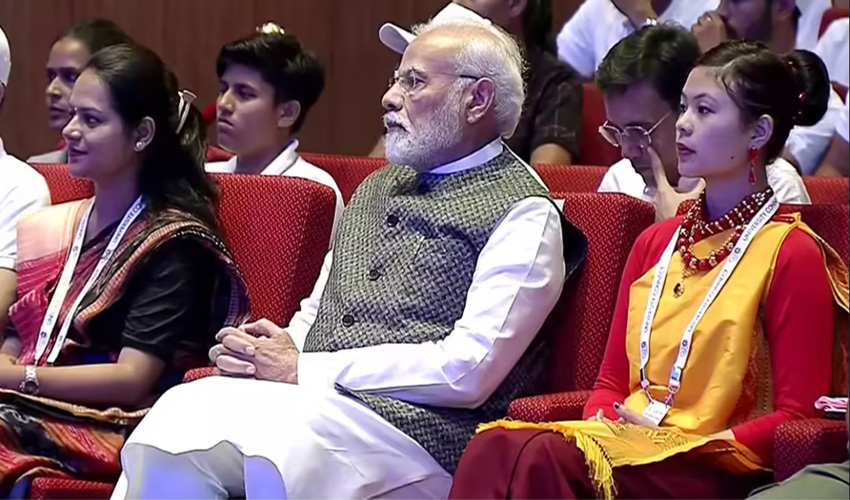Questions to Ask the Prime Minister: A Student’s Guide
Meeting the Prime Minister is an exciting and rare opportunity—one that can shape perspectives, spark inspiration, and even influence future policies. For students, such an interaction is a chance to raise concerns, seek guidance, and understand the nation’s vision from its highest elected leader. But what are the right questions to ask?
Below is a comprehensive article outlining meaningful, diverse, and unique questions students can ask the Prime Minister, along with advice on framing questions for maximum impact.
Why is It Important for Students to Ask Questions?
Students are the backbone and future of society. Their curiosity, concerns, and aspirations should influence how a country moves forward. By asking questions, students not only express their voices but also contribute to broader dialogues about education, well-being, society, and national growth. Engaging with the Prime Minister helps bridge the gap between the government and the youth, ensuring that policies and reforms address real issues faced in classrooms and communities.
Categories of Questions Students Can Ask
1. Education Reform and Policy
- What is your vision for the future of Indian education, and how can students actively contribute to its development?
- How does the government plan to ensure education is both accessible and affordable across all regions, particularly in rural areas?
- How can the education system focus more on skill development instead of rote learning and theoretical knowledge?
2. Exam Stress and Mental Health
- What steps are being taken to reduce exam-related stress and anxiety among students?
- How important is mental health, and what initiatives are in place to support student well-being in schools?
- What advice would you give students for balancing academic pressure with mental well-being?
3. Career Guidance and Skill Development
- How can students make informed choices about their career paths and educational streams after key milestones like Class 10 or 12?
- What career guidance programs does the government offer to help students identify their interests and strengths?
- How is the government supporting vocational training and the development of practical skills for youth?
4. Digital Learning and Innovation
- How does the government plan to integrate technology into classrooms for equitable digital learning?
- What future role do you see for online education and digital resources, particularly in remote parts of the country?
- How can students cultivate innovation and entrepreneurship at a young age, and what support systems are available for aspiring young entrepreneurs?
5. Parental Pressure and Societal Expectations
- How can parents better support their children during exams and in exploring interests beyond academics?
- How can parents and society reduce pressure on students related to exam results and career choices?
- What is your message to students whose strengths lie outside science and math, especially when faced with societal expectations?
6. Extracurricular Activities and Holistic Growth
- How can schools encourage and support non-academic talents such as sports, arts, and music?
- How important are extracurricular activities in building character and skills for the future workforce?
- What reforms are planned to promote creativity and critical thinking alongside academic learning?
7. Personal Resilience, Failure, and Motivation
- How should students deal with failure and setbacks in their academic journey?
- Could you share how you personally overcome challenges and maintain motivation amidst pressure?
- What message do you want to give to students struggling to find motivation or feeling lost about their direction?
Tips for Framing Your Question
- Be Specific: Avoid very broad or generic questions so you can get a more detailed answer.
- Be Respectful, but Bold: Ask what really matters to you. Leaders appreciate thoughtful critiques and creative ideas.
- Relate to Personal Experience: You can mention how a particular policy or issue has affected you or your peers.
- Think of the Bigger Picture: Your question might help not just you, but many other students nationwide.
Sample List: 10 Smart Questions for Students
- How can students manage academic stress and maintain good mental health during exam seasons?
- What reforms can be expected in the education sector to prepare Indian students for the global workforce?
- How is the government making higher education more accessible to students from economically weaker backgrounds?
- What advice would you offer students facing societal and parental pressure regarding career choices?
- Can you explain how digital education initiatives are bridging the rural-urban divide?
- How can the government help students explore and excel in careers beyond the traditional fields of engineering and medicine?
- What are your thoughts on integrating environmental studies and sustainability skills into everyday curriculum?
- How can students get more opportunities for hands-on skill development and internships during school?
- How can schools and colleges better support students’ participation in sports, culture, and leadership activities?
- What is your message for the youth aspiring to create positive change in their communities?
Conclusion
A conversation with the Prime Minister is a momentous occasion. For students, it’s a chance to raise issues that matter most—be it exam stress, digital innovation, skill development, mental health, or education policy. By asking relevant, thoughtful questions, students not only seek guidance for their own journeys but help shape the course of education and youth policy in India. So prepare your questions, be honest, and make your voice heard—your future and your country depend on it.
